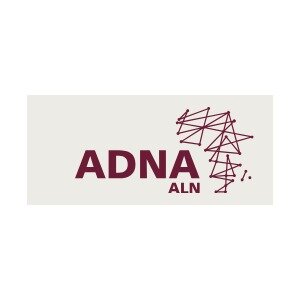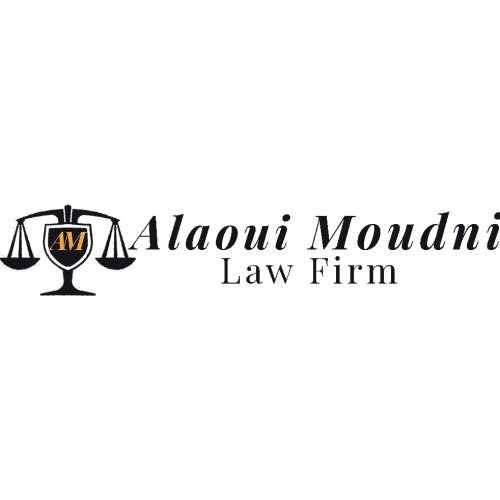Best Tax Lawyers in Casablanca
Share your needs with us, get contacted by law firms.
Free. Takes 2 min.
List of the best lawyers in Casablanca, Morocco
About Tax Law in Casablanca, Morocco:
Tax law in Casablanca, Morocco is a set of regulations and rules imposed by the government to govern the taxation of individuals and businesses within the city. It aims to ensure that taxes are properly collected and used to fund public services and initiatives. Understanding tax law is essential to ensure compliance and avoid any legal issues or penalties.
Why You May Need a Lawyer:
There are several situations where seeking legal advice from a lawyer specializing in tax law in Casablanca, Morocco may be necessary:
- Starting or managing a business: A lawyer can provide guidance on tax obligations, registration, and compliance for businesses.
- Preparing tax returns: A lawyer can help individuals navigate the complexities of tax forms, deductions, and credits.
- Tax disputes: If you face a dispute with tax authorities or need to appeal a decision, a lawyer can represent your interests and ensure your rights are protected.
- International taxation: For individuals or businesses involved in cross-border transactions or with international tax obligations, a lawyer can provide specialized advice.
- Tax planning: A lawyer can assist with strategic planning to minimize tax liabilities and optimize financial outcomes.
Local Laws Overview:
In Casablanca, Morocco, tax laws are primarily governed by the General Tax Code and specific regulations issued by the tax authorities. Key aspects of local tax laws in Casablanca include:
- Taxpayer identification: Individuals and businesses must obtain a taxpayer identification number to fulfill their tax obligations.
- Tax types: The tax system in Casablanca includes various taxes such as income tax, value-added tax (VAT), corporate tax, property tax, and customs duties.
- Reporting and payment deadlines: Taxpayers must adhere to specific deadlines for filing tax returns and making tax payments to avoid penalties.
- Tax deductions and credits: Certain deductions and credits may be available to lower tax liabilities, depending on the nature of income and expenses.
- Tax audits and investigations: Tax authorities have the power to audit taxpayers, investigate suspected tax evasion, and impose penalties in case of non-compliance.
Frequently Asked Questions:
1. Can I file my tax returns online in Casablanca, Morocco?
Yes, the tax authorities in Casablanca, Morocco provide an online platform for taxpayers to file their tax returns. This e-filing system offers convenience and simplifies the process of submitting tax information.
2. What are the tax rates for income tax in Casablanca, Morocco?
The tax rates for income tax in Casablanca, Morocco vary depending on the income level. The rates range from 0% to 38%. Consult a tax professional or refer to the current tax regulations for specific rate details.
3. Are there any tax incentives available for businesses in Casablanca?
Yes, Casablanca, Morocco provides certain tax incentives to attract businesses and promote economic growth. These incentives may include tax exemptions, reduced tax rates, or special deductions. Consult a tax lawyer or the tax authorities for detailed information on available incentives.
4. How can I contest a tax assessment or decision from the tax authorities?
If you disagree with a tax assessment or decision made by the tax authorities in Casablanca, Morocco, you have the right to contest it. You can initiate an appeal process within a specified timeframe and present your case. It is advisable to seek legal representation to navigate this process effectively.
5. Can a lawyer help me with international tax matters in Casablanca?
Yes, a lawyer specializing in tax law can provide valuable assistance with international tax matters in Casablanca. They can guide you on cross-border transactions, tax treaties, reporting obligations, and other related issues.
Additional Resources:
If you need legal advice or further resources regarding tax in Casablanca, Morocco, the following organizations may be helpful:
- Casablanca Chamber of Commerce and Industry - Tax Department
- General Directorate of Taxes - Morocco
- Ministry of Economy, Finance, and Administrative Reform - Morocco
- Local tax advisory firms and lawyers specialized in tax law
Next Steps:
If you require legal assistance in tax matters in Casablanca, Morocco, consider taking the following steps:
- Identify your specific tax issue or concern.
- Research and select a reputable lawyer specializing in tax law.
- Arrange a consultation to discuss your situation and evaluate their expertise.
- Gather and provide all relevant documents and information.
- Collaborate with your lawyer to develop a strategy or course of action.
- Follow their guidance, provide necessary cooperation, and attend any required meetings.
- Maintain communication with your lawyer throughout the process.
- Keep copies of all correspondence and documents related to your case.
Lawzana helps you find the best lawyers and law firms in Casablanca through a curated and pre-screened list of qualified legal professionals. Our platform offers rankings and detailed profiles of attorneys and law firms, allowing you to compare based on practice areas, including Tax, experience, and client feedback.
Each profile includes a description of the firm's areas of practice, client reviews, team members and partners, year of establishment, spoken languages, office locations, contact information, social media presence, and any published articles or resources. Most firms on our platform speak English and are experienced in both local and international legal matters.
Get a quote from top-rated law firms in Casablanca, Morocco — quickly, securely, and without unnecessary hassle.
Disclaimer:
The information provided on this page is for general informational purposes only and does not constitute legal advice. While we strive to ensure the accuracy and relevance of the content, legal information may change over time, and interpretations of the law can vary. You should always consult with a qualified legal professional for advice specific to your situation.
We disclaim all liability for actions taken or not taken based on the content of this page. If you believe any information is incorrect or outdated, please contact us, and we will review and update it where appropriate.

















